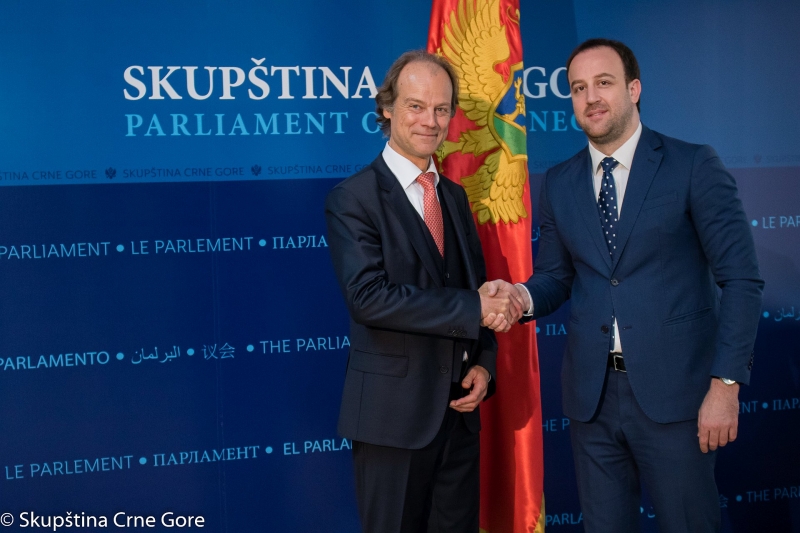The European Commission's report on Montenegro for 2018 is clear, detailed and comprehensible and states what remains for Montenegro to do in the next stage of its European integration process, said Ambassador of the Federal Republic of Germany to Montenegro, H.E. Mr Hans Günther Mattern, at a meeting with Mr Andrija Nikolić, Chairperson of the Committee on International Relations and Emigrants.
Ambassador Mattern has emphasised that the official Berlin wants to help our country, because it is in the European Union's interest that Montenegro and other Western Balkan countries become its members, which is crucial for the stability, prosperity and welfare of the citizens in the region.
Chairperson of the Committee on International Relations and Emigrants Mr Andrija Nikolić and Ambassador Mattern have noted that the EU-Western Balkans Strategy sends a clear message that the European Union stands by the invitation addressed to the countries in the region to become the EU members in an ambitious, but realistic perspective, with joint assessment that Montenegro has made good progress in the integration process, as recognised in this year's report of the European Commission, but that the field of the rule of law remains its biggest challenge. Furthermore, Ambassador Mattern emphasised the need for the reduction of the political influence on the judiciary bodies, which, as he said, was also noted in the EU report.
Mr Nikolić especially thanked Ambassador Mattern for the strong support that Germany has been giving to the European integration of Montenegro, both at an expert level and through raising awareness among other EU members about the importance and the need for strengthening the enlargement policy.
The Chairperson of the Committee on International Relations and Emigrants noted that frequent communication with the Bundestag was very important for the Parliament of Montenegro, bearing in mind its role in the decision-making process on further stages of the integration processes of Montenegro and the Western Balkans countries.
In this regard, Mr Nikolić presented concrete proposals for improving interparliamentary cooperation, for which Ambassador Mattern showed interest and willingness to provide support, saying that in the interparliamentary cooperation, especially in democratic countries such as Germany and Montenegro, the foreign affairs committees in particular play a significant role.












